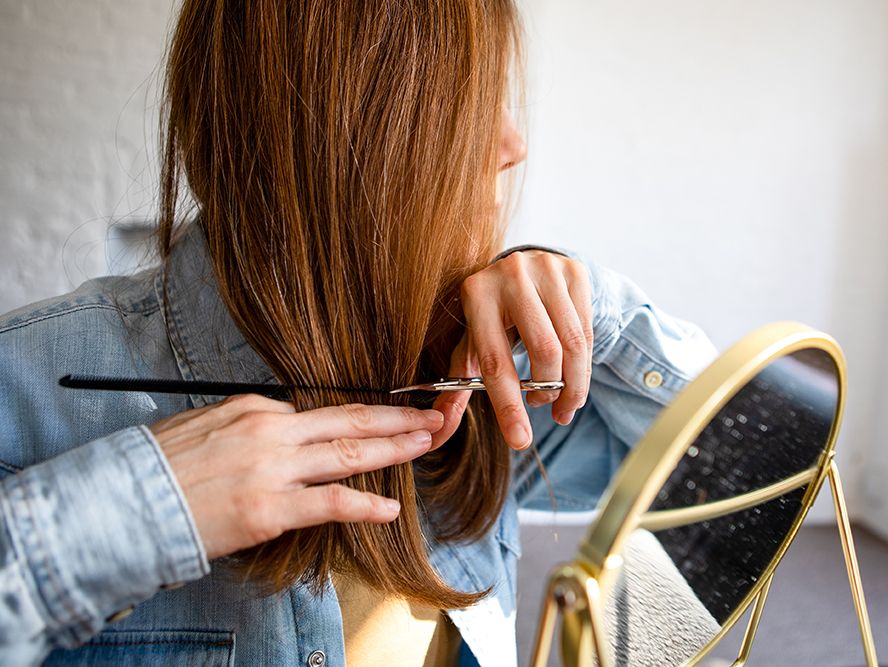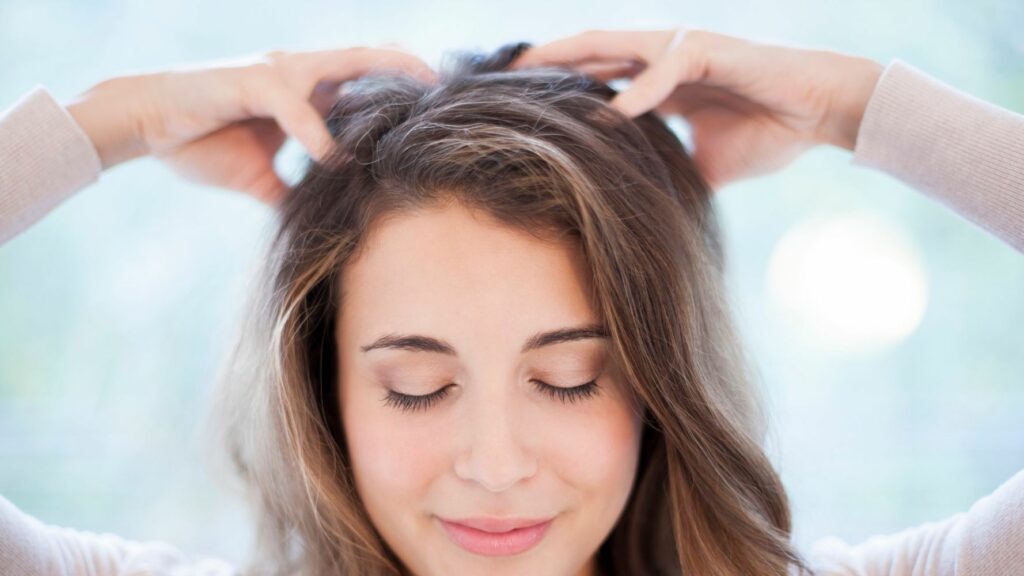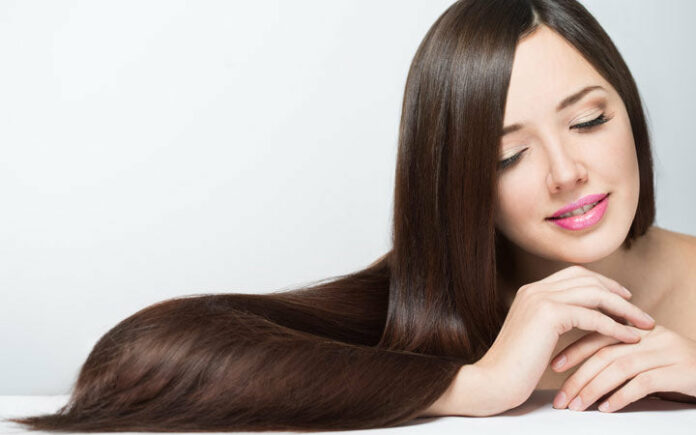A healthy hair care routine is not just a vanity project; it’s a testament to your overall wellness. Our hair, like any other part of our bodies, requires meticulous care and attention. Its state can often reflect our internal health, including nutritional deficiencies or hormonal imbalances. Moreover, a well-maintained mane contributes to our self-esteem and confidence. This article aims to provide a roadmap to a robust hair care routine, one that is rooted in science, practicality, and respects the uniqueness of each individual’s hair type and concerns. From dietary recommendations to the right hair products and tools, from daily practices to monthly indulgences, we will journey through various tips for healthy hair care that can transform your hair from lackluster to lustrous.
1. Regular Trimming for Healthy Hair Growth

Regular trimming is an essential step in a healthy hair care routine. It may seem counterintuitive to cut your hair for growth, but regular trims help eliminate split ends and damage that can cause breakage and stunt hair growth. Split ends can travel up the hair shaft, causing further damage and thinning. By trimming your hair every six to eight weeks, you can maintain its health, reduce breakage and thinning, and promote steady growth, leading to fuller and healthier hair.
2. Right Hair Care Products
Choosing the right hair care products tailored to your hair type and specific needs is paramount for maintaining healthy hair. Each hair type requires a unique regimen, whether it’s for dry, oily, curly, straight, thin, or thick hair. Use a mild, preferably sulfate-free shampoo to cleanse, a conditioner to nourish and detangle, and a deep treatment mask once a week for intensive hydration. Also, using hair oils can add extra nourishment and shine. Remember, what works for others might not work for you.
3. Balanced Diet for Healthy Hair
A balanced diet plays a vital role in maintaining healthy hair. Nutrients like proteins, vitamins (A, C, D, and E), and minerals such as iron and zinc are essential for hair growth and strength. Incorporate foods rich in these nutrients like leafy greens, nuts, seeds, eggs, fish, and lean meats into your diet. Additionally, drinking plenty of water keeps your hair hydrated and prevents dryness and brittle strands. Remember, the health of your hair is a reflection of your overall nutritional status.
4. Protecting Your Hair from Heat Damage
Excessive heat exposure can cause significant damage to your hair, leading to breakage, dryness, and frizziness. It’s essential to protect your hair before using heat styling tools like curling irons or straighteners. Use a heat protectant spray or serum that creates a barrier against the high temperature. Also, avoid using these tools on the highest setting; opt for a moderate temperature instead. In addition, consider air-drying your hair or using a towel to blot out moisture instead of using a blow dryer. Remember, your hair’s health should come before any styling preference.
5. Hydration in Hair Health
Hydration is a vital aspect of maintaining healthy, shiny hair. Just like our bodies, our hair needs adequate moisture to stay nourished and strong. Dehydrated hair can lead to breakage, dryness, and an unhealthy appearance. Make it a habit to hydrate your hair regularly by using deep conditioning treatments or hair masks. Ingredients like shea butter, coconut oil, and aloe vera are excellent for hair hydration. Also, don’t forget to drink plenty of water daily, as internal hydration reflects on the health and vitality of your hair.
6. Treating Hair with Natural Oils
Natural oils can provide abundant nutrients to your hair, promoting growth and maintaining health. Coconut oil is praised for its ability to penetrate hair strands, reducing protein loss. Argan oil is excellent for adding shine and taming frizz. Jojoba oil closely resembles the scalp’s natural oils, making it a great moisturizer. Castor oil can help promote hair growth. To utilize these oils, warm a small amount, apply to your hair from roots to ends, leave in for a few hours or overnight, then wash out.
7. Proper Way to Brush and Comb Your Hair

Correct brushing and combing techniques are integral to a healthy hair care routine. Start by choosing the right tool; wide-toothed combs and brushes with soft, rounded bristles can help avoid damage. Always detangle your hair starting from the ends and gradually move towards the roots to prevent breakage. If your hair is prone to knots, try using a detangling spray. Remember that hair is most vulnerable when wet, so avoid harsh brushing post-shower; instead, gently detangle with a comb.
8. Deep Conditioning for Nourished Hair
Deep conditioning is a great tips for healthy hair. It involves the use of a conditioning product that penetrates deeper into the hair shaft to restore its natural shine and elasticity. Apply the conditioner generously to your hair after shampooing, concentrating more on the ends. Allow it to sit for 10-15 minutes and then rinse thoroughly. For best results, perform deep conditioning once a week. It helps in combating dryness, damage, and frizz, leading to smoother and shinier hair.
9. Avoiding Over-Shampooing Your Hair
Over-shampooing can strip your hair of its natural oils, leading to dryness and potential damage. It’s important to find a balance that suits your hair type. For most people, shampooing every other day or even twice a week is sufficient. Remember, when you do shampoo, focus mainly on cleaning the scalp rather than the hair length. Also, use a sulfate-free shampoo as it is less harsh and damaging. Following these tips will help you maintain healthy and well-hydrated hair.
10. Using Hair Masks for Extra Care
Hair masks are an excellent way to give your hair extra care and nourishment. These deep conditioning treatments can repair damage, restore moisture, and enhance shine and softness. Whether you opt for store-bought masks or DIY natural ones using ingredients like avocado, egg, honey, or coconut oil, ensure you leave it on for the suggested time, usually around 20-30 minutes, before rinsing. Using a hair mask once a week can significantly improve the health and appearance of your hair.
11. Managing Stress for Hair Health
Managing stress is a crucial part of maintaining hair health. Stress can lead to hair thinning or even hair loss. Practices like regular exercise, yoga, and meditation can effectively reduce stress levels. Also, ensure you get adequate sleep, as lack of sleep can exacerbate stress-related hair issues. Additionally, hobbies and activities you enjoy can serve as great stress-relievers. Remember, a healthy mind often leads to a healthy body, and that includes the health of your hair.
12. Importance of Regular Exercise for Hair Growth
Regular exercise is vital for hair growth as it boosts circulation and the supply of vital nutrients to your hair follicles. It also helps regulate hormones and reduces stress, factors that can contribute to hair loss. Simple activities like walking, jogging, swimming, or yoga can have significant benefits. Remember to maintain a routine and exercise regularly – your hair, just like your body, will thank you for it. Good health and well-being can be reflected in the luster and vitality of your hair.
13. Using Silk Pillowcases for Hair Health
Using silk pillowcases can significantly improve hair health. Traditional cotton pillowcases often cause friction leading to hair breakage and frizz. Silk, being smooth and soft, reduces the friction and hence, prevents hair damage. Additionally, it does not absorb moisture as cotton does, helping your hair to maintain its natural oils. This simple switch in your bedtime routine can thus lead to shinier, healthier hair with less tangles and split ends – a small change with noticeable benefits.
Related: Best Hair Loss Remedies-Cause and Tips.
14. Hair Care for Different Hair Types
Understanding your hair type is critical to healthy hair care. Different hair types, such as straight, wavy, curly, and coily, each require unique care strategies to maintain their health and vitality. For instance, curly hair tends to be drier and may need extra moisture, while straight hair may require less frequent conditioning. Using hair products specifically designed for your hair type can promote optimal hair health, enhancing its natural beauty. Therefore, it’s crucial to tailor your hair care routine to your specific hair type.
15. Regular Scalp Massage

A regular scalp massage can do wonders for your hair health. Not only does it feel incredibly relaxing, but it also stimulates blood flow to your hair follicles, promoting hair growth and health. This can be done while shampooing or with the use of a scalp massager tool. The increased circulation can also help to distribute natural oils, maintaining a healthy scalp environment. Moreover, it’s a stress-relieving practice that can indirectly contribute to reducing hair fall caused by stress.
Conclusion
Nurturing beautiful, healthy hair is an integral part of self-care that should not be overlooked. These 15 tips for healthy hair care routine, from regular trimming and the right choice of hair products, to the importance of a balanced diet and adequate hydration, all play a significant role in maintaining hair health. Emphasizing natural treatments, stress management, and targeted care based on hair type can also make a profound difference. With consistent application, these hair care practices can enhance hair strength, growth, and shine, leading to healthier hair over time and boosting your overall confidence and wellbeing.


